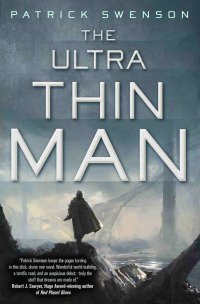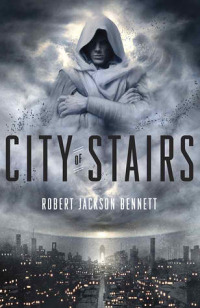
Published by Scribner on September 9, 2014
More than 23,000 books have been written about President Lincoln, attesting to the important role he plays in the American imagination. Todd Brewster notes that some biographers of Lincoln have revered him as the second coming of Christ while others have portrayed him as a devious scoundrel.
Lincoln's Gamble is not a biography. Brewster calls it an attempt to discover the "real" Lincoln by focusing on a slice of his presidency. It succeeds at least to the extent of revealing an important slice of the "real" Lincoln. Brewster paints Lincoln during the last half of 1862 as complex and conflicted, principled and pragmatic, a fence-sitter at war with himself before his better nature triumphed.
The first half of the book describes the ambivalent path to the Emancipation Proclamation that Lincoln traveled (in the words of Frederick Douglass) "in his own peculiar, cautious, forbearing and hesitating way." Much of the second half addresses Lincoln's approach to the war, his frustration with his generals, his determination to shift the Union's strategy from defense to offense, and his final (albeit limited) decision to free Confederate slaves.
Brewster emphasizes Lincoln's deliberate and lawyerly approach to emancipation. One one hand, while Lincoln shared the prevailing racism of his time, he believed that the core American values of liberty and equality were antithetical to slavery. Despite his belief in equal rights, he plainly did not view black Americans as morally or intellectually equal to white Americans. His preferred outcome would have been an end to slavery while encouraging former slaves to find a new country in which to dwell. On the other hand, Lincoln's foremost concern, as Brewster sees it, was to save the Union. Whether emancipation would further or hinder that goal was a question that constantly vexed him. Had Lincoln been able to negotiate an end to the rebellion by phasing out slavery over several decades while compensating slave owners for their losses, Brewster makes clear that he would have jumped at that chance, his personal opposition to slavery notwithstanding.
Brewster argues that the connection between slavery and the Civil War was critical to Lincoln. Lincoln's reluctance to proclaim an immediate end to slavery was based in part upon his recognition that the Southern economy was dependent upon it. Later, when the war was not going well for the Union, Lincoln concluded that damaging the economy of the South by freeing slaves might hasten a favorable end to the rebellion. Yet even then he feared that freeing slaves would prolong the war and might lead to continued violence both by and against former slaves. It was thus with an ambivalent mixture of resolve and uncertainty that he signed the Emancipation Proclamation on January 1, 1863.
The concept of emancipation by presidential proclamation also troubled Lincoln because freeing slaves was arguably beyond his authority. Lincoln recognized that the Constitution, without using the words slave or master, sanctioned slavery by requiring the return of fugitive "laborers" to the "party" to whom their labor was due. Although not using the express term, the Constitution plainly regarded slaves as property. By what legal (as opposed to moral) authority can the president deprive people of their property without compensation and due process of law? While Lincoln (as opposed to Stephen Douglas) did not accept the notion that "state's rights" included the right to enslave, Brewster argues that Lincoln felt an obligation to uphold the law as it was embodied in the Constitution.
Lincoln resolved the dilemma by tying emancipation to the president's constitutional war power authority, a bold but questionable judgment. Moreover, because Lincoln's justification for freeing slaves applied only to states in rebellion and would no longer apply in states that laid down their arms, the Emancipation Proclamation purported to free slaves in Confederate states, but not to end slavery. It took a constitutional amendment for that to happen.
Brewster argues that Lincoln's fretting about the language and legal justification for emancipation was, in the end, largely irrelevant to supporters of abolition, who saw the proclamation as a moral statement rather than the careful legal document that Lincoln drafted. Regardless of (and perhaps contrary to) Lincoln's intent, the proclamation changed the war from an effort to save the Union to a war of liberation. In the end, Lincoln's justification of emancipation as a military necessity proved prophetic, as the loss of slaves sapped the Confederacy's strength while adding thousands of fresh soldiers to the Union's forces.
I'm not sure Lincoln's Gamble adds new insight to Lincoln's character, but after 23,000 Lincoln books, I doubt that would be possible. Lincoln's Gamble is nevertheless full of interesting facts. None of the book's digressions (a brief history of slavery, profiles of various individuals who may have influenced the president's thinking, the role science played in justifying nineteenth century racism, the uncertain evidence of Lincoln's religious beliefs) come across as padding or filler.
The book is balanced. Brewster does not shy away from Lincoln's character flaws or from the damage he did when he made poor decisions (particularly the suspension of habeas corpus). At the same time, he is respectful of the difficult choices Lincoln made during a critical six months in the nation's history. As a good historian should, Brewster relies largely upon contemporary sources and quotes them freely while taking care to evaluate their credibility. He makes clear distinctions between facts that are almost certainly true and those (such as where and when Lincoln began writing the Emancipation Proclamation) that are subject to doubt. Yet his lively narrative does not bog down in the nit-picking of history. He calls upon art and literature to help the reader understand the war and its impact on the nation. Brewster's tone is casual rather than academic, making it easy reading for lay readers (like me) who want to learn something new without wading through dense and dry tomes.
RECOMMENDED
 Friday, September 19, 2014 at 6:53AM
Friday, September 19, 2014 at 6:53AM 



